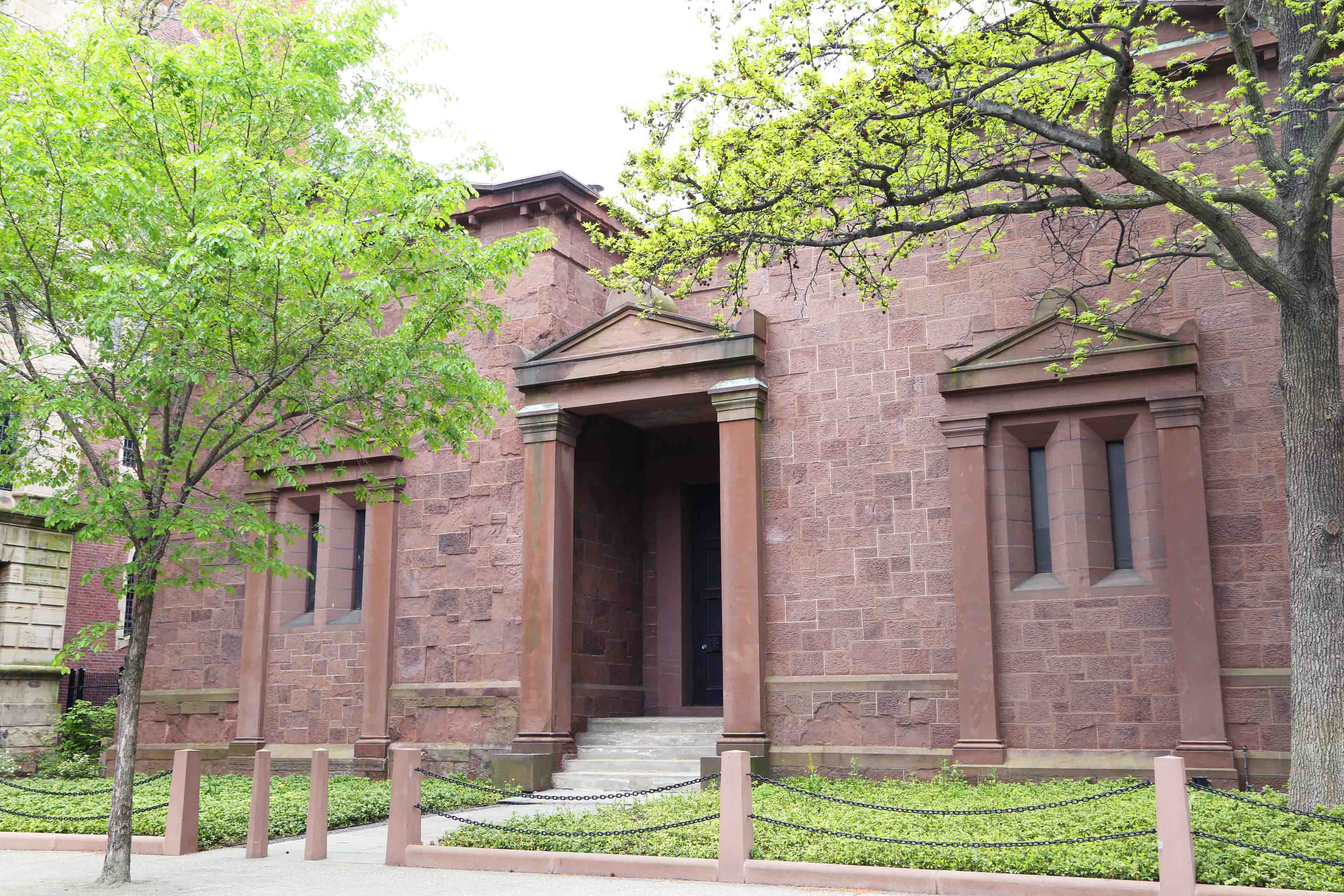
Yale’s secret societies today are a controversial institution, often criticized as bastions of exclusivity. But in past years, students were more proactive in expressing their distaste for societies — some, in fact, used to set booby traps in front of societies’ tombs to ensnare members.
That was one insight that David Alan Richards ’67, a member of Skull and Bones who recently published a book about Yale’s secret societies, provided Tuesday evening during a discussion at the New Haven Museum about the history of Yale’s secret societies.
Richards, whose latest book “Of Skulls and Keys: The History of Yale’s Secret Societies,” was published in September, spoke about the ways in which members of Yale’s secret societies have affected America’s political and cultural landscapes and about the often-overlooked progressivism of the societies. The talk drew more than 150 New Haven and Yale community members.
“Whatever one’s opinion of them, these small student clubs which began in the 1830s and 1840s, to this day, operate on the patently Romantic proposition that the discovery of an inner authentic self both corresponds with and advances the aim of forming an ideal human,” Richards said.
Since their inception, secret societies have served as forums for spirited debate and extemporaneous speaking, which Richards described as necessary skills for alumni who went on to become prominent politicians, businessmen and lawyers. Due to the political aspect of these debates, societies turned to secrecy because it was necessary to maintain honest discourse, he added.
Richards also emphasized the outsized influence of society members in American politics — six secretaries of state, 19 U.S. senators and 10 state governors were members of Yale’s seven aboveground societies between 1833 and 1952, he said.
“Yale outstripped all of its rivals for statesmen,” Richards said.
Despite the exclusive nature of societies, Richards said Yale’s secret societies admitted minority and LGBT students before the University and the rest of American society recognized and elevated the personal excellence of “castes outside of the powerful world of Christian Caucasian males.”
Audience members’ reactions to the talk varies. In the Q&A section that followed Richards’ talk, Ruth Silver, a New Haven resident, noted that former president George W. Bush ’68 is a member of Skull and Bones and that his actions as president harmed many people in the United States and Iraq. Silver told the News that while she thought the talk was informative, she felt Bush’s time at Yale contributed to some of the poor decisions he made as president.
“The speaker was very inclusive and very knowledgeable, but I also feel as though he glorified societies,” Silver said. “He claimed that Bush was a debater which helped him get to where he is. There are some people that believe that Rumsfeld, Cheney and Bush should be put behind bars, and I think that something was lacking in his education.”
In response to Silver’s comment during the Q&A, Johanna Epperson, another New Haven resident, said Bush’s decision should not be singled out, because many presidents have started wars.
Bill Dennett, who also attended the talk, said he had a personal connection to Yale’s secret societies. As assistant dean of students in the late 1970s, Dennett said he oversaw the society system and worked to ensure fairness during the tapping process.
Isha Dalal | isha.dalal@yale.edu
Alice Park | alice.park@yale.edu







